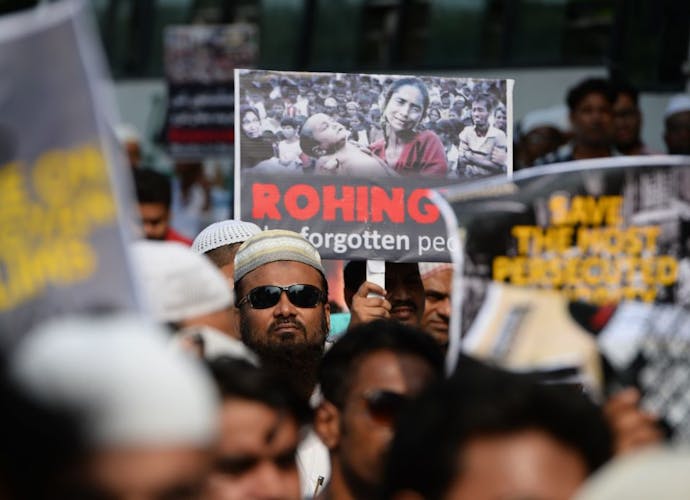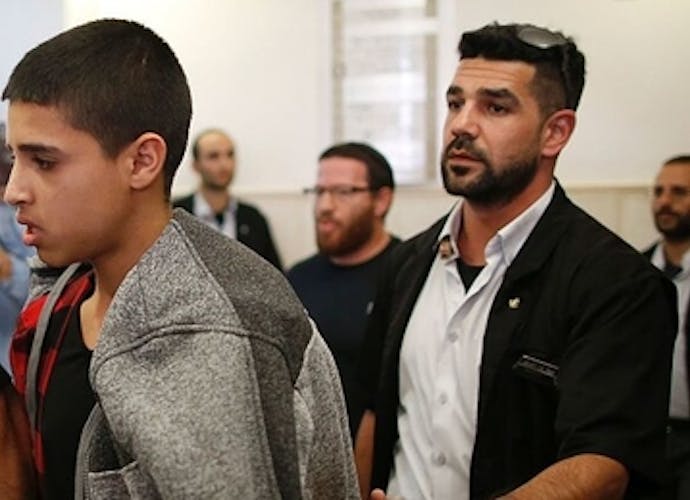India: Overuse of pre-trial detention continues to violate detainees’ rights
Legal safeguards to prevent excessive pretrial detention are routinely flouted across states in India, leading to the violations of detainees’ fair trial rights, Amnesty International India said in a new briefing published today.
The briefing, “Justice Under Trial: A study of pre-trial detention in India”, analyzes the responses to about 3000 Right to Information (RTI) applications filed by Amnesty International India to the nearly 500 district and central prisons in the country on the implementation of safeguards to protect the rights of pre-trial detainees, or ‘undertrials’.
“Two out of three people in India’s prisons are undertrials, and this proportion has not budged for several years despite various Supreme Court judgments, executive guidelines and legal reforms,” said Asmita Basu, Programmes Director, Amnesty International India.
“This briefing highlights some of the systemic problems in the criminal justice system, which contribute to excessive pre-trial detention and overcrowding in prisons. These include failure to produce undertrials in court and to provide them legal aid.”
The briefing reveals a severe shortage across many states of police ‘escorts’ to take undertrials to court for their hearings. Between September 2014 and February 2015, in over 110,000 instances, undertrials were not produced for their hearings in court either in person or through video-conferencing facilities, in effect hampering their right to trial within a reasonable time.
RTI data also revealed glaring gaps in the legal aid system. In most states, legal aid lawyers visited prisons less than once a month. Many states have relatively few legal aid lawyers, compared to their undertrial populations. 5% of jails reported having no legal aid lawyers at all.
Prison authorities in several states also appeared to have a poor understanding of section 436A of the Code of Criminal Procedure, which was introduced in 2005 to prevent undertrials from being held in pre-trial detention for more than half the sentence they would receive if convicted. Directives issued by the Ministry of Home Affairs in 2013 to reduce overcrowding of jails were also not properly followed. Only 38% of prisons which responded to RTI applications produced minutes of the meetings of Undertrial Review Committees.
“It is shocking that nearly thirty years after the Supreme Court first drew attention to the violations of undertrials’ rights, India is still struggling to tackle this issue effectively,” said Leah Verghese, Senior Campaigner and Researcher, Amnesty International India.
“The overuse of pre-trial detention effectively punishes people before they are convicted, and makes a mockery of their right to be presumed innocent until proven guilty. Tackling this issue requires concerted efforts from both the central government and state governments, which have unfortunately come to treat the incarceration of undertrials as the rule rather than the exception.
“The central government has announced its intention to curb excessive undertrial detention. It is high time that this promise is finally kept. ”
Under international human rights law, all detainees have a right to trial within a reasonable time or to release. The right to liberty requires that deprivation of liberty should always be the exception, and imposed only if it is justified and necessary in the circumstances of the case.
Detention may be warranted if there is a risk that the arrested person may, for instance, intimidate a witness or tamper with evidence, but all possible non-custodial measures, such as bail or undertaking to appear, must be explored by judicial authorities before making a decision to remand in custody.
The briefing makes several recommendations to authorities at both central and state levels, including standardization of the remuneration paid to legal aid lawyers across India; the establishment of a database to alert prison authorities about undertrials eligible for release; strengthening of the monitoring of legal aid lawyers’ effectiveness; and the creation of a separate reserve of police personnel dedicated to providing escorts for undertrials to be taken to court.
Additional Information
As of December 2015, 67% of prisoners in India were undertrials. India’s undertrial population has a disproportionate number of Muslims, Dalits and Adivasis, compared to their share in the overall population. 29% of undertrials are not formally literate. A quarter have been in prison for more than a year. Most prisons in India are overcrowded, partly as a result of excessive undertrial detention. The average occupancy rate in Indian prisons is 114%.



